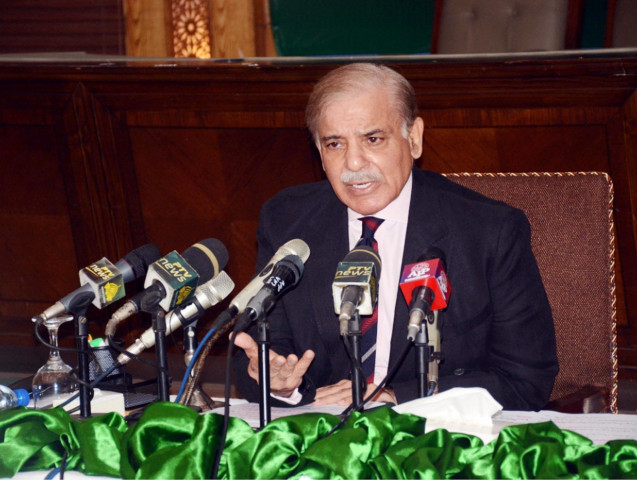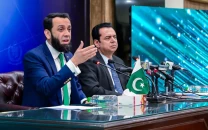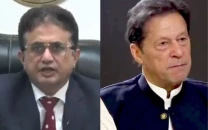PM gives nod to new ambassadors, CGs
New envoys appointed to Norway, Senegal and Nepal

Prime Minister Shahbaz Sharif has given the nod to the appointment of new Pakistani ambassadors as well as consuls general countries to different countries, it emerged on Saturday.
Sources said Sadia Qazi had been given the slot of Pakistan's new ambassador to Norway. Similarly, Saima Syed has been selected as the Pakistan's envoy to Senegal. Likewise, Abrar Hashmi would be Pakistan’s new ambassador to Nepal.
The sources said Murad Wazir had been chosen as the new consul general of Pakistan in Barcelona, Spain. Khalil Bajwa has been approved as the consul general in Toronto, Canada. Counter-Terrorism Director General Asim Ali Khan, who was currently posted at the Foreign Office, has been appointed as the consul general in Los Angeles, US.
Similarly, Aftab Chaudhry has been given the slot of the country's consul general in Houston, US.
An ambassador is the highest-ranking diplomatic officer, designated by the government as its resident representative in a foreign state or before an international organisation.
The primary duties of ambassadors are to maintain diplomatic relations with the receiving state and promote foreign policy strategies through international organisations. Among other responsibilities, ambassadors ensure the security of their state citizens living in the receiving country, seek to build and maintain strong diplomatic and economic ties with foreign nations, and administer all the affairs of the embassy.
States commonly have ambassadors in most countries with which they have diplomatic relations, and the embassy is usually located in the host country’s capital. Ambassadors have diplomatic immunity. Therefore, they are protected against prosecution in the receiving country for the entire period in which they hold their diplomatic post.
The Vienna Convention on Diplomatic Relations of 1961 provides that “a diplomatic agent shall enjoy immunity from the criminal jurisdiction of the receiving State.” Consuls general do not enjoy diplomatic immunity but are to some extent exempt from the jurisdiction of the receiving State.
The archives, for example, all other official documents and papers kept in a consulate, and all correspondence between the consul and their government are inviolable. Consuls general are also often exempt from all kinds of rates and taxes and from personal taxes. The precise extent of such consular privileges is usually established in bilateral and multilateral agreements known as consular conventions.
Many of these have been superseded by the Convention on Consular Relations (Vienna, 1963).
Nationals of their home country turn to the consul general for legal, criminal and even natural disaster assistance when they are visiting other host countries and cities.
One chief responsibility of a consular general is that they must spearhead certain initiatives designed to strengthen ties to their host community and fellow nationals. This can include organising scholarship opportunities for students or social services for detainees from their homeland. The consul general may also help organise electoral committees to help foreign nationals participate in elections in their home country while abroad.
(With input from agencies)



















COMMENTS
Comments are moderated and generally will be posted if they are on-topic and not abusive.
For more information, please see our Comments FAQ